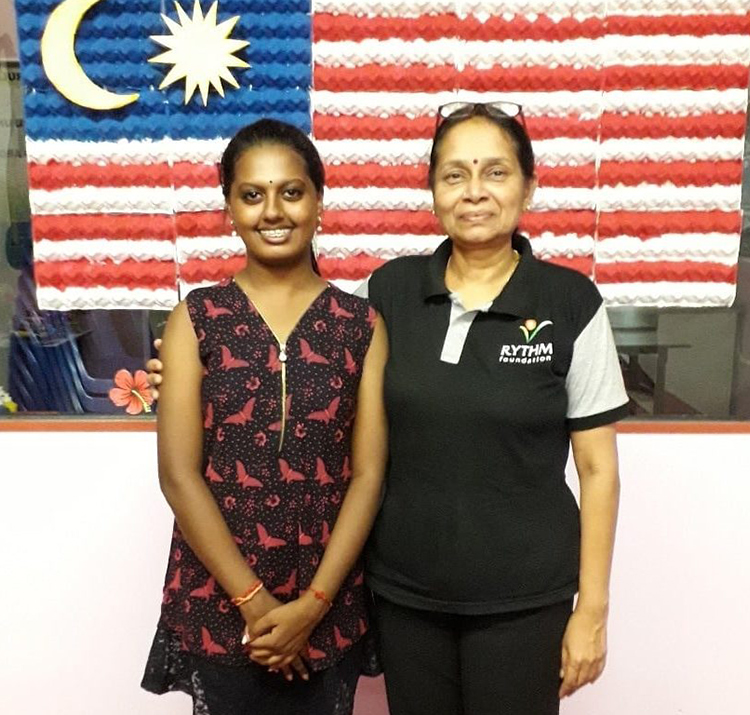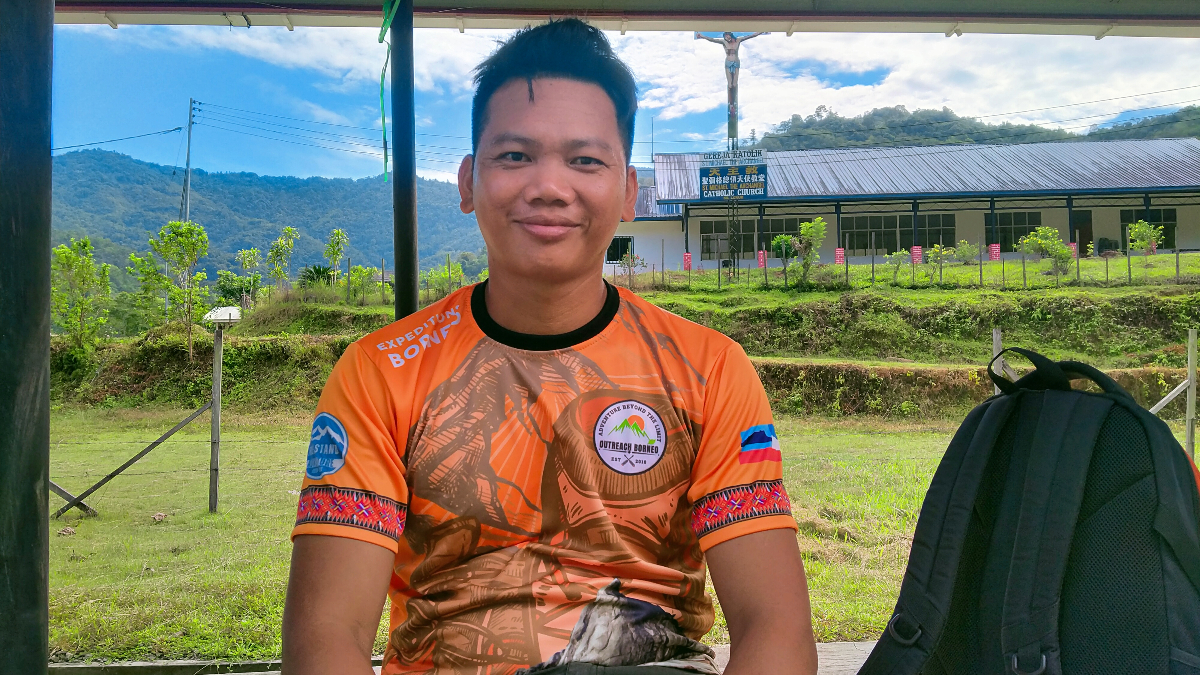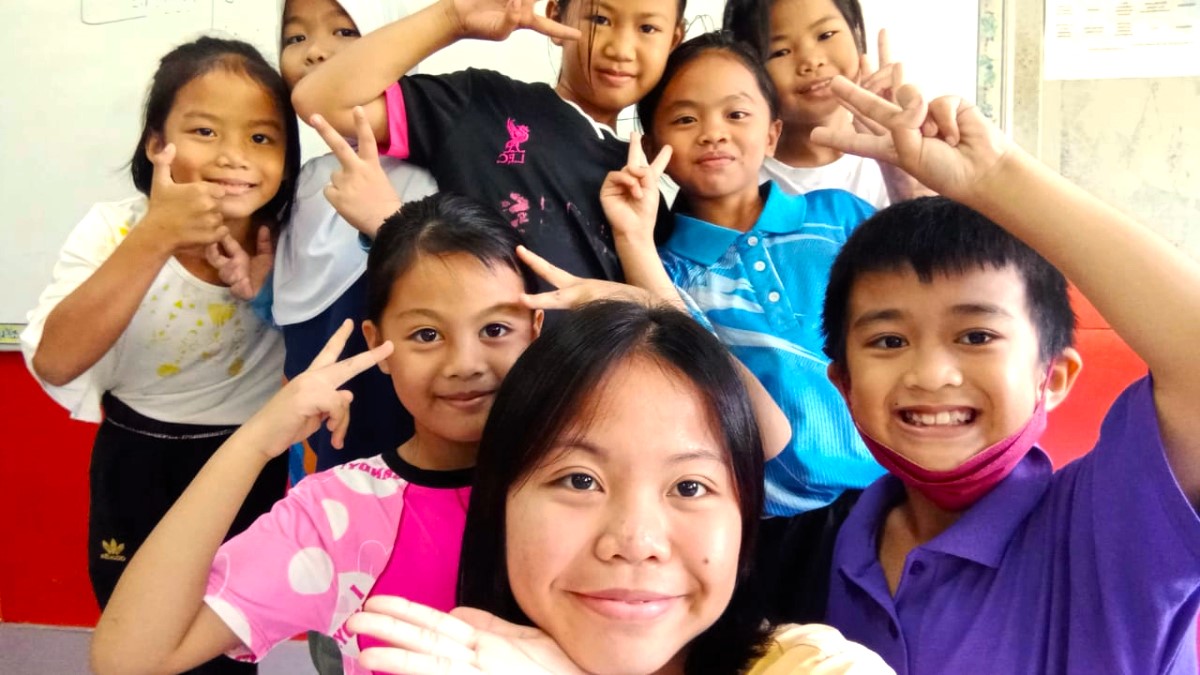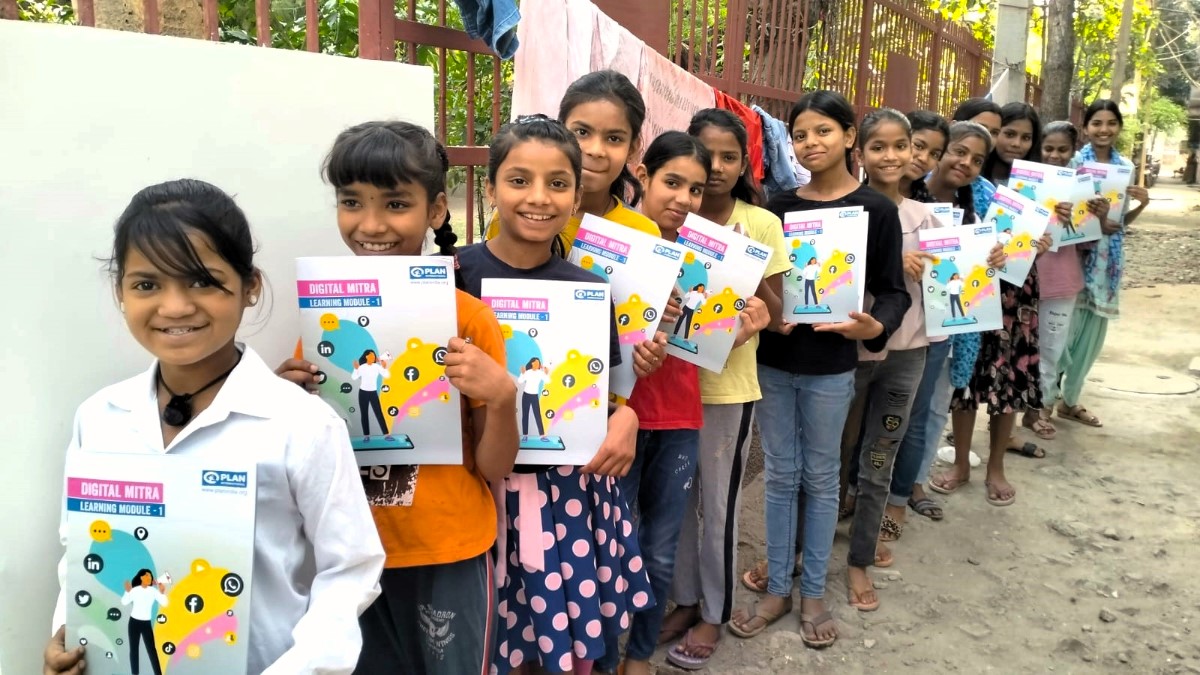 Since she has training and experience in counselling, she feels she is able to connect with and understand the girls.
“During the camps, we also emphasize to the girls the importance of seeking help when they face situations such as physical or sexual abuse. We make them aware of the hotline Talian Nur, or to speak up to their school counsellors or teachers if they are ever in such situations,” she added.
Barathy said many of the girls who attended the Maharani camps were without any hobby, ambition or interest to learn any skills.
“They had poor self-esteem, communication skills and were unable to articulate their thoughts and feelings. They felt lonely, unappreciated by their families and teachers and often had poor academic results. Their family backgrounds made the situation worse since they didn’t have anyone who gave them direction or encouragement to study,” Barathy says.
Since she has training and experience in counselling, she feels she is able to connect with and understand the girls.
“During the camps, we also emphasize to the girls the importance of seeking help when they face situations such as physical or sexual abuse. We make them aware of the hotline Talian Nur, or to speak up to their school counsellors or teachers if they are ever in such situations,” she added.
Barathy said many of the girls who attended the Maharani camps were without any hobby, ambition or interest to learn any skills.
“They had poor self-esteem, communication skills and were unable to articulate their thoughts and feelings. They felt lonely, unappreciated by their families and teachers and often had poor academic results. Their family backgrounds made the situation worse since they didn’t have anyone who gave them direction or encouragement to study,” Barathy says.
 She recalls her frustration with how some teachers discriminated and put down non-performing students at school.
“The teachers often spoke of the students negatively judging them as failures without really understanding their circumstances. I wanted to reach out to such young people who were mistreated and give them opportunities to be a better version of themselves,” she said.
Barathy joined the Vijayaratnam Foundation (now known as RYTHM Foundation) in 2012.
She recalls her frustration with how some teachers discriminated and put down non-performing students at school.
“The teachers often spoke of the students negatively judging them as failures without really understanding their circumstances. I wanted to reach out to such young people who were mistreated and give them opportunities to be a better version of themselves,” she said.
Barathy joined the Vijayaratnam Foundation (now known as RYTHM Foundation) in 2012.
“Initially, I travelled to all the Maharani camps with the project executive as an observer. Slowly, I started handling students with challenges or those who needed counselling where I helped them to address their problems. Being a mother of two children I was able to understand the challenges encountered by the teenagers,” she said.Very soon, the Maharani team realised that camps alone were not enough to understand the girls and their needs. In 2015, the Maharani Learning Lab (MLL) was set up at Sungai Siput, Perak. “The 3 days camp was not enough for us to understand the girls as well as we would like or to build the trust and relationship with them the way we wanted to. The girls also found it easier to express themselves or share their problems after coming to the MLL as they became more comfortable and trusted us. They would talk to us and share their problems during the activities or after the classes,” she added. She said the team chose Sungai Siput for the location of the MLL as the community in that area largely comprised low income families with severe social issues that needed attention.
 “The MLL provided direct community support through a variety of skills training programmes such as cooking, sewing, baking, DIY skills, soft skills like communications, grooming, speech and drama, creative skills, performing on stage and visual arts,” she said.
The first few months were a struggle as Barathy and other Maharani coordinators had to convince the local community that the Maharani programme can help their children with learning new skills.
“The MLL provided direct community support through a variety of skills training programmes such as cooking, sewing, baking, DIY skills, soft skills like communications, grooming, speech and drama, creative skills, performing on stage and visual arts,” she said.
The first few months were a struggle as Barathy and other Maharani coordinators had to convince the local community that the Maharani programme can help their children with learning new skills.
“We went to almost all the schools in Sg Siput and explained the programme to the teachers and how it would benefit the girls, especially with their academics. Our efforts eventually bore fruit since the teachers then started recommending it to the parents who finally began to send their girls to the lab,” she said.Now in her eighth year with the programme, Barathy says it did not take a long time to see the positive changes in the girls once they joined the Maharani Learning Lab.
 “The schools say that the students who attended the lab showed improvement in school attendance, progress in language lessons and for many of them it brought out their creative side. The most important development is the girls also stayed in school and completed their Form Five (the final year of high school).
“We made a difference in the lives of these girls who otherwise would have dropped out of school, entered into early marriage or become factory workers to support their families. We believed in them and helped them realise their potential and got them to see that they have choices and the ability to break out of the circle of poverty,” she said.
“I never realised the important role I had played in the lives of these girls until one day during a camp activity the participants were asked to draw a tree and name someone who has played a significant role in their lives as a tree trunk. Some of them wrote my name on the tree trunk and said I was the strongest motivator and supporter they have had in their entire life. I knew then that I am serving the right purpose with these girls,” she added.
“The schools say that the students who attended the lab showed improvement in school attendance, progress in language lessons and for many of them it brought out their creative side. The most important development is the girls also stayed in school and completed their Form Five (the final year of high school).
“We made a difference in the lives of these girls who otherwise would have dropped out of school, entered into early marriage or become factory workers to support their families. We believed in them and helped them realise their potential and got them to see that they have choices and the ability to break out of the circle of poverty,” she said.
“I never realised the important role I had played in the lives of these girls until one day during a camp activity the participants were asked to draw a tree and name someone who has played a significant role in their lives as a tree trunk. Some of them wrote my name on the tree trunk and said I was the strongest motivator and supporter they have had in their entire life. I knew then that I am serving the right purpose with these girls,” she added.
 Her long term experience working with the Maharani girls has made Barathy more appreciative of her own journey as a woman. Inspired by Maharani and wanting to give back to the community, especially girls from underprivileged backgrounds, Barathy got her family members to contribute sanitary napkins to several homes that house young girls.
“Menstrual hygiene is among the topics that we teach the girls at Maharani. I wanted to help as many young girls out there and this is my simple way of reaching out and helping them,” she said.
Her long term experience working with the Maharani girls has made Barathy more appreciative of her own journey as a woman. Inspired by Maharani and wanting to give back to the community, especially girls from underprivileged backgrounds, Barathy got her family members to contribute sanitary napkins to several homes that house young girls.
“Menstrual hygiene is among the topics that we teach the girls at Maharani. I wanted to help as many young girls out there and this is my simple way of reaching out and helping them,” she said.





